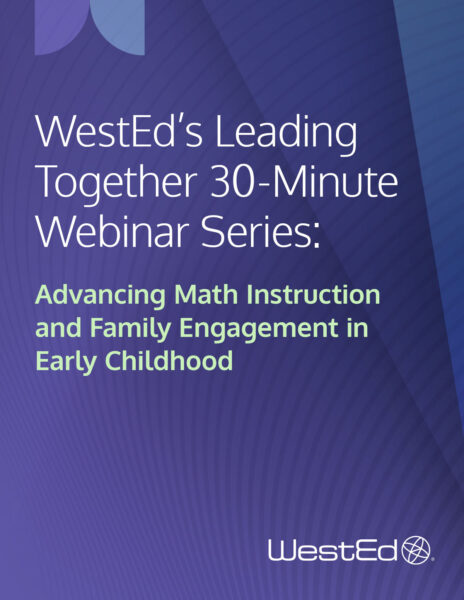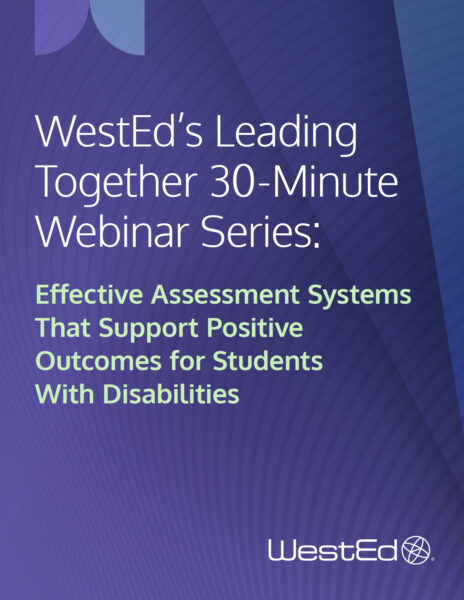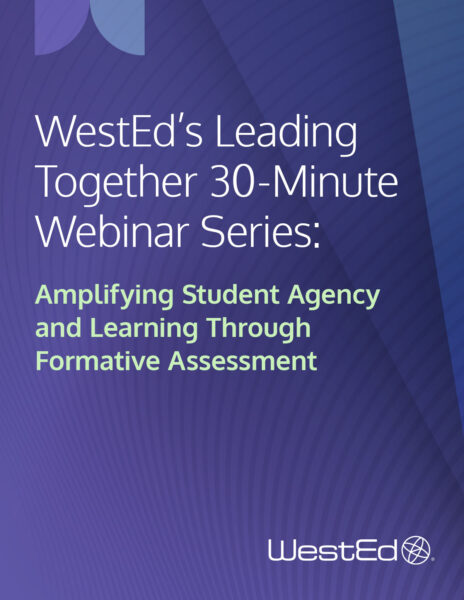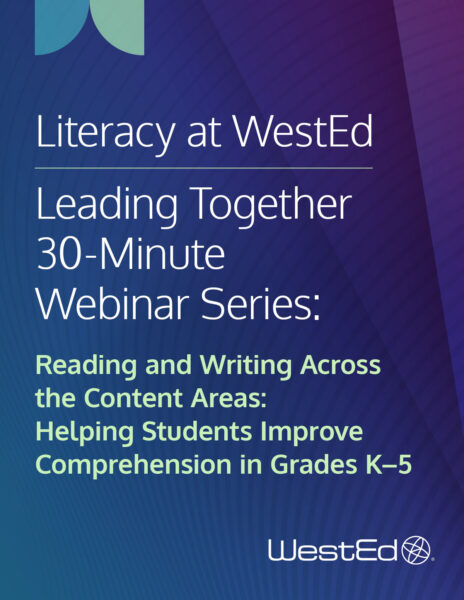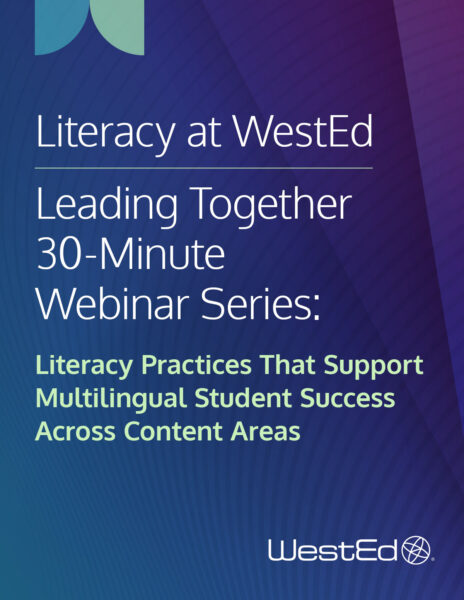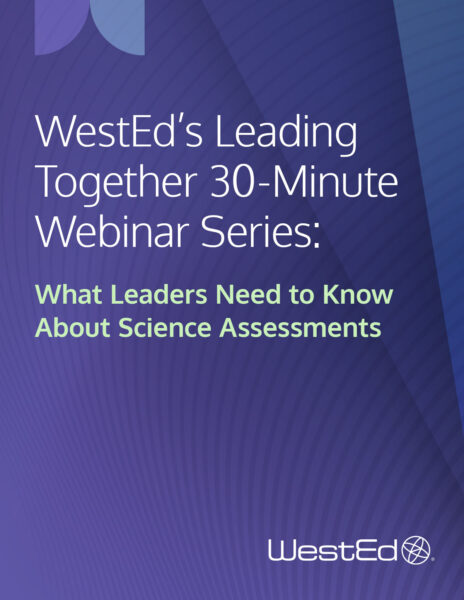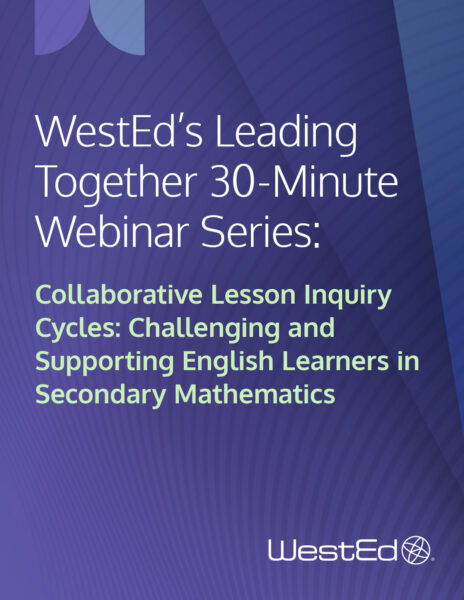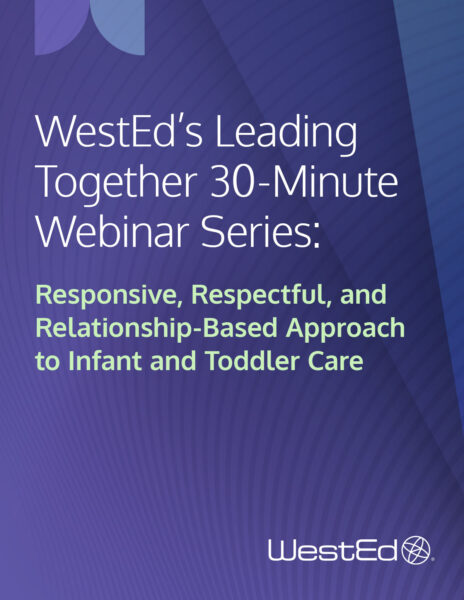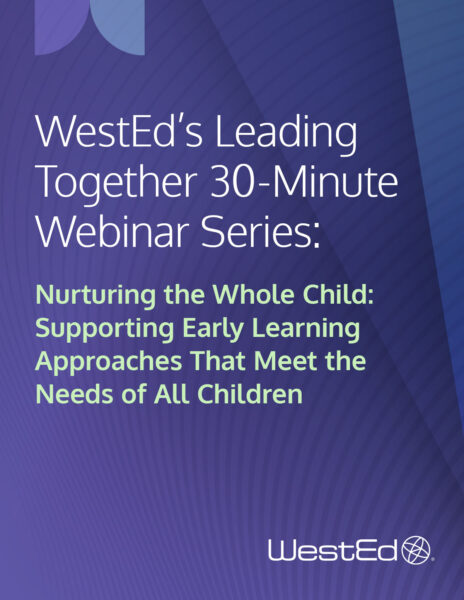Filters
Date Range
Focus Area
Audience
Level
Resource Type
Research Method
Resource Format
Advancing Math Instruction and Family Engagement in Early Childhood
Discover research-based strategies and practical tools for early childhood educators to boost young children’s math development through effective instruction and family engagement.
Effective Assessment Systems That Support Positive Outcomes for Students With Disabilities
Explore how to design supportive, coherent, and effective assessment systems that support positive outcomes for students with disabilities. Learn more about evidence-based strategies and practical tools to ensure assessments are aligned with curricula, standards, and your district goals to drive meaningful learning for all learners.
Amplifying Student Agency and Learning Through Formative Assessment
Explore the roles leaders, coaches, and teachers play that nurture student agency and build collaborative learning environments through daily formative assessment routines.
Reading and Writing Across the Content Areas: Helping Students Improve Comprehension in Grades K–5
Explore evidence-based K–5 comprehension strategies that integrate literacy across subjects, with practical examples to boost elementary student success.
Literacy Practices That Support Multilingual Student Success Across Content Areas
Discover four evidence-based strategies to build disciplinary literacy that boost engagement for all students, especially multilingual learners.
What Leaders Need to Know About Science Assessments
Districts across the country are adopting assessments to improve student outcomes. But what are the ingredients that transform a test into an instrument for strengthening…
Collaborative Lesson Inquiry Cycles: Challenging and Supporting English Learners in Secondary Mathematics
In this recorded webinar session, learn about “collaborative lesson inquiry cycles” in secondary mathematics, a model for teacher professional collaboration that can be extended to other disciplines and grade levels, particularly students who are English Learners.
Responsive, Respectful, and Relationship-Based Approach to Infant and Toddler Care
Discover the Program for Infant/Toddler Care (PITC) approach—an approach that places responsive caregiving at the heart of building strong relationships with infants and toddlers and their families.
Nurturing the Whole Child: Supporting Early Learning Approaches That Meet the Needs of All Children
Explore how a whole-child approach and the expertise of educators can create meaningful, supportive experiences for children with disabilities, their families, and the educators themselves.
